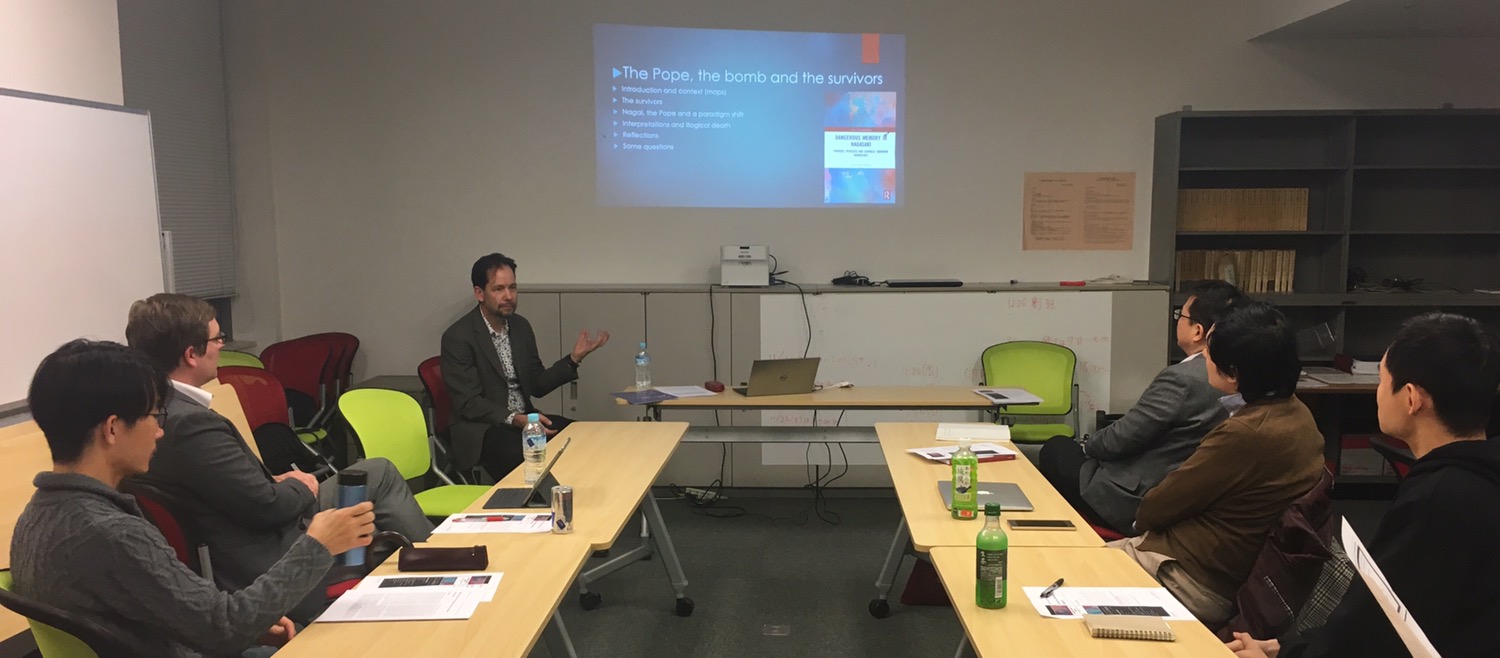On November 18, 2019, Waseda University’s Global Asia Research Center hosted a workshop entitled “The Pope, the Bomb, and the Survivors: Memory and the Catholics of Ground Zero.” Dr. Gwyn McClelland spoke about his recently published research monograph, which was centered around the survival testimonies of Nagasaki atomic bomb survivors.
He initiated his talk by explaining the disastrous scene when the U.S. aircraft dropped bombs on the towns in Nagasaki and comparing the damage with that of Hiroshima. Compared with the bomb attacks in Hiroshima, the bomb attacks in Nagasaki has received less attention both inside and outside of Japan.
Nagasaki is well-known for its population of Catholic Japanese, but in the postwar era the Nagasaki’s Catholic authorities did not actively engage in the production of literature related to the atomic bombing, anti-nuclear movement, or pacifist movements. This was in great contrast to Hiroshima’s churches, which actively engaged in publishing the testimonies from its survivors.
Dr. McClelland shared audio clips and quotations from his interviews with survivors. They told the stories of young people who suffered tremendous losses, with some of them left as orphans. Through their narratives one can observe how communities were fractured and survivors suffered from the trauma. The term “Dangerous Memory” symbolizes not only emotions but also the aspects of political theology.
After the presentation, a lively discussion went on. Participants brought up a variety of questions related to the oral history of the survivors and religious communities in Nagasaki. This research contributes to the contemporary peace education, trauma studies, and theology. More importantly, Dr. McClelland brought to the light of less explored war history of Nagasaki.

